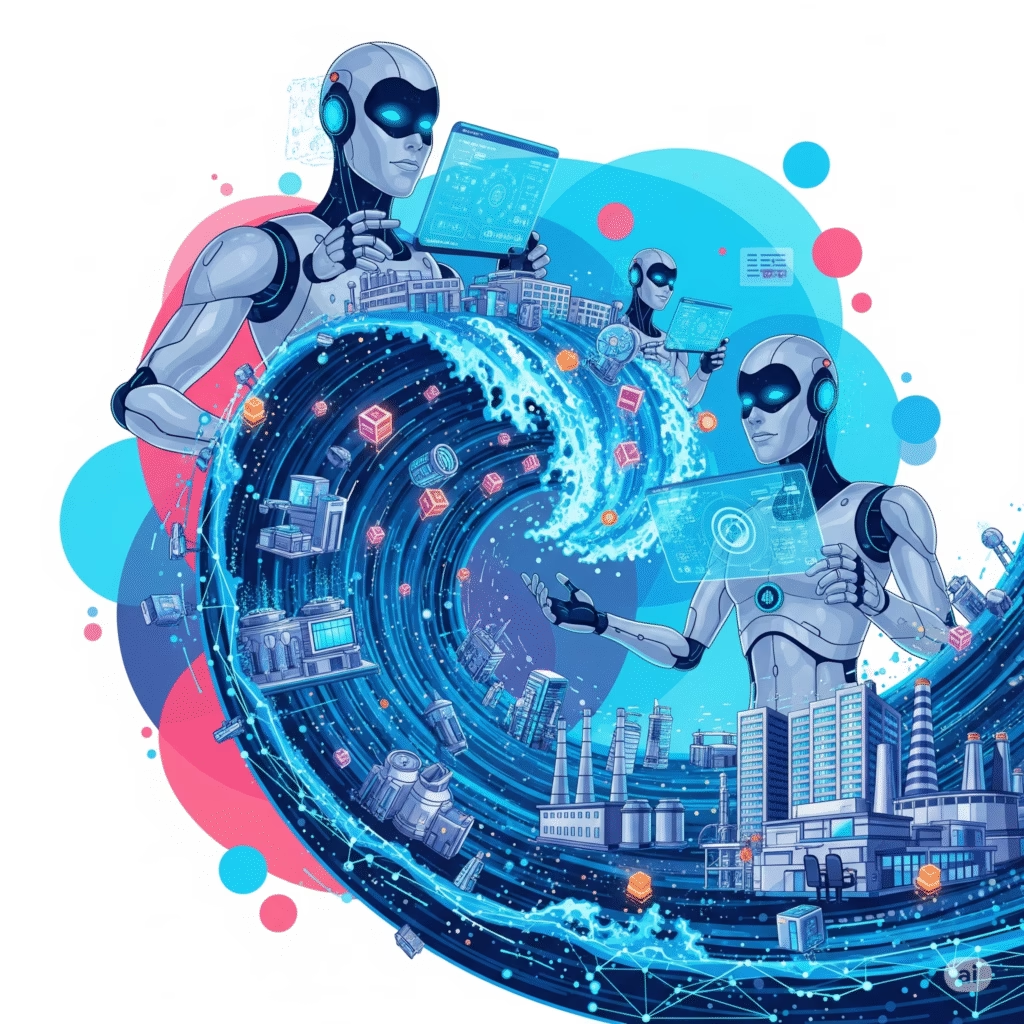Introduction to AI Agents
AI agents are advanced software systems powered by artificial intelligence, designed to perform tasks autonomously, make decisions, and interact with users or other systems. These agents leverage machine learning, natural language processing (NLP), and data analysis to deliver personalized, efficient solutions across industries like customer service, healthcare, finance, and more.
What Are AI Agents?
AI agents are intelligent programs capable of perceiving their environment, reasoning, and taking actions to achieve specific goals. Unlike traditional software, AI agents can learn from data, adapt to changes, and improve over time. Examples include virtual assistants like Siri, chatbots, and autonomous systems in robotics.
Key Features of AI Agents:
- Autonomy: Operate independently with minimal human intervention.
- Adaptability: Learn from new data and experiences.
- Interactivity: Communicate with users via text, voice, or visual interfaces.
- Goal-Oriented: Designed to accomplish specific tasks, from scheduling to problem-solving.
Types of AI Agents
AI agents can be categorized based on their functionality and complexity:
- Reactive Agents
These agents respond to specific inputs without memory or learning capabilities. Example: A thermostat adjusting temperature based on sensor data. - Deliberative Agents
These agents use reasoning and planning to make decisions, often incorporating past experiences. Example: Self-driving cars navigating traffic. - Learning Agents
These agents improve performance over time by learning from data. Example: Recommendation systems on streaming platforms like Netflix. - Multi-Agent Systems
Groups of AI agents collaborate to solve complex problems. Example: Supply chain optimization systems.
Applications of AI Agents
AI agents are transforming industries by automating tasks and enhancing decision-making. Here are some key applications:
- Customer Service: AI-powered chatbots handle inquiries 24/7, reducing response times and improving customer satisfaction.
- Healthcare: AI agents assist in diagnostics, patient monitoring, and personalized treatment plans.
- Finance: Fraud detection systems and algorithmic trading bots rely on AI agents for real-time analysis.
- E-commerce: Recommendation engines boost sales by suggesting products based on user behavior.
- Logistics: Autonomous drones and robots optimize delivery routes and warehouse operations.
Benefits of AI Agents
- Efficiency: Automate repetitive tasks, saving time and resources.
- Scalability: Handle large volumes of tasks without compromising quality.
- Accuracy: Reduce human error in data analysis and decision-making.
- Personalization: Deliver tailored experiences based on user preferences.
Challenges and Ethical Considerations
While AI agents offer immense potential, they also pose challenges:
- Bias: Agents trained on biased data may produce unfair outcomes.
- Privacy: Handling sensitive user data requires robust security measures.
- Job Displacement: Automation may impact certain job sectors.
- Transparency: Ensuring AI decisions are explainable to users.
Ethical AI development involves addressing these challenges through fairness, accountability, and transparency.
The Future of AI Agents
The future of AI agents is promising, with advancements in generative AI, reinforcement learning, and multi-agent collaboration. Emerging trends include:
- Human-AI Collaboration: Agents will work alongside humans, augmenting productivity.
- Contextual Intelligence: Improved understanding of nuanced user needs.
- Cross-Industry Integration: AI agents will power smart cities, IoT ecosystems, and more.
How to Implement AI Agents for Your Business
- Identify Use Cases: Determine tasks that can benefit from automation, such as customer support or data analysis.
- Choose the Right Tools: Platforms like TensorFlow, Dialogflow, or custom solutions from xAI can help.
- Train and Test: Use relevant data to train your AI agent and test for accuracy.
- Monitor and Optimize: Continuously improve performance based on feedback and new data.
For businesses interested in AI solutions, exploring xAI’s API services at xAI API can provide powerful tools to build custom AI agents.
Conclusion
AI agents are revolutionizing how we interact with technology, offering unparalleled efficiency and personalization. By understanding their capabilities and addressing ethical concerns, businesses and individuals can harness AI agents to drive innovation. Stay ahead in the AI revolution by exploring tools like Grok, available on grok.com and the X platform.
Keywords: AI agents, artificial intelligence, intelligent automation, machine learning, chatbots, autonomous systems, AI applications, ethical AI, business automation, xAI.